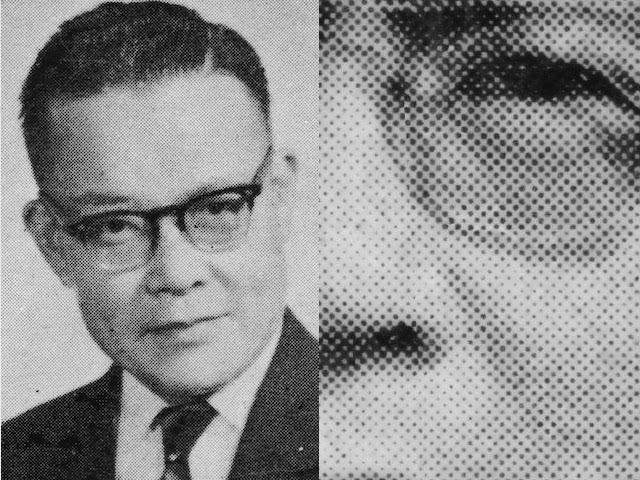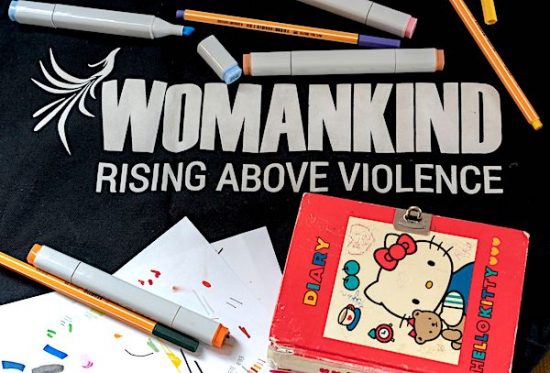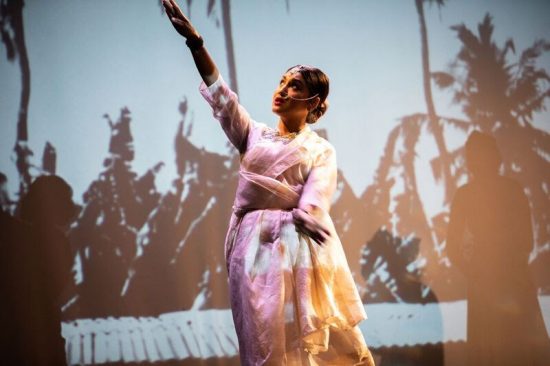‘What else was contained within the pages? What had come before the tofu boxes and dusty scrolls, the grumpy old man who spent his last two decades in America cloistered in my uncle’s back house?’

August 19, 2016
Whenever I eat loquats from street vendors, it always takes me back to summers spent beneath the loquat tree at my grandfather’s house in Los Angeles with my cousin Dennys. He would hoist me up onto his shoulders to pick the pale orange fruit, its sweet-smelling perfume making us swoony. We ran around spitting the smooth dark pits at each other, inhaling fruit flies as we dodged and lurched. We washed our sticky faces off with a garden hose, the first spout of water always warm from the sun. Picking loquats for our grandfather was the one chore our parents assigned us that we happily conceded to; treating it like a game. My grandfather—wearing a white tank top and khakis, calligraphy ink staining the fingertips of his index, middle finger, and thumb of his right hand, his skin smelling of menthol and camphor Salonpas patches—waited for us in his back house, a squat stuccoed building with small windows looking out into the grassless yard. We deposited the fruit next to the lampblack inksticks on his hulking metal desk, a metal fan blowing the corners of his papers into little curls.
In Los Angeles, my grandfather was a hoarder of old scrolls, stacks of discarded plastic tofu containers, and a garage full of books. He had long ago left behind his former life as a professor of literature, a writer of theoretical texts on psychology and literature, and a host of a weekly radio show in Taipei, where listeners called in to discuss flooded crops or nightmares about the old war days. My grandfather never talked about his former lives in China and Taiwan. He never told stories that expanded my understanding of the aisles of books in the garage, the shelving constructed of discarded metal racks from the public library.
This pragmatic and symbolic distinction of discrete lives, belonging not to me but to the members of my family who had immigrated to America, remained a necessary model of severance in order to persist. Instead of aggregating loss, this method allowed them to begin anew each time, emancipated from the pain of the past. Talk of former times was more than illicit—betraying a conviction that denounced its pollutive influence—it was impossible. Even the positive aspects of former lives, whether in terms of achievements or prosperity, remained unspeakable, for their presence in memory only served as a reminder of their absence in the present. To speak of my grandfather’s professorial days was to desire them, and at the very nucleus of this desire existed lack, the lack of recognition and intellectual purpose as a ninety-year old man living in his son’s back house in a country where he felt useless, placeless, and did not speak the language. My grandfather accumulated thousands of old Chinese books, their language inaccessible to me, in order to inhabit the life he once had as an academic in Taiwan. His daily calligraphy practice engendered a return to his place in the world as a writer. Speaking of erstwhile, war-torn years and the effects of its displacement was impossible; however, reading books and writing calligraphy were not only possible but real.
It was only through years of reflection that I came to these conclusions about my grandfather, and by extension, my entire family. The only thing my grandfather talked to me about was when I was being a good girl or a bad girl, according to whether I was running up a dust storm in the backyard with Dennys throwing water balloons or reading on my uncle’s plastic couch in the front house, my legs flattened like two sweaty pancakes to the vinyl.
Shuffling between his small house and the single-car garage that my uncle transformed into a library for him, my grandfather was able to avoid inhabiting the doldrums of his aged body, plagued with high cholesterol and diabetes; the body that could not drive or walk any further than the perimeter of the dirt yard surrounding the two 300 square foot buildings he would spend two decades—nearly the entirety of his life in America—inside; the body that waited for the delivery of food trays and toiletries; the body that was wheeled three times a week into the back of a medical van for transport to dialysis at the Huntington Hospital in Pasadena.
The dialysis machine, an artificial organ, was invented by a Dutch physician during the Nazi occupation of the Netherlands, Johan Kolff. Known as the father of artificial organs, whose artificial heart is still in use today, Kolff saved more than eight hundred people from Nazi labor camps by hiding them in his hospital. The first artificial kidney device he constructed consisted of fifty yards of sausage casing wrapped around a wooden drum submerged in a salt solution. Later, he used orange juice cans and a washing machine to construct the artificial organs. If a man can grow a heart, he can build one, Kolff insisted. Kidney failure would have killed my grandfather, if not for artificial organs. During dialysis, blood flowed out of his body into a machine that purified the blood and then returned it, clean, back into his body.
On the day my grandfather was transported to a convalescent home in a green and white medic van, he left behind his metal desk, scrolls, goat and weasel hair calligraphy brushes, and shelves of books. In the months preceding his departure, I remember the rapid deterioration of his body, which was by then mostly defined by the clothes he wore. He was boneless beneath them, only skin and hair and the waterlogged parabola of his surging belly. When I visited him in the convalescent home, he lay in his gated metal bed, seeping sores tattooing his back and buttocks into a red, yellow and brown-scabbed ikat pattern, staring not through the tall window into a garden of bougainvillea and gingko trees but at the blank white wall in front of him. Eventually, his feet had to be amputated, and then his left leg. Shortly after, he died. A filament snapped, releasing me further into the drift, away from an already-blurred history. After his funeral, my mother and her siblings threw all of his possessions into the trash, scrolls and brushes and tofu boxes, and every single one of his books.
Among the objects deemed as dreck, my mother discovered a manuscript written in six notebooks inside my grandfather’s metal desk. She had offered the notebooks to me, perhaps because she could not bear to keep them herself, or because she knew that within the family, I was the only one who had inherited the literary interests of my grandparents. The gift of the manuscript was a talismanic inheritance that held at once great responsibility and great humiliation, for I could not read Chinese. I could speak Mandarin, but only enough to understand just how little I knew. In summer school with Dennys, other Chinese kids taunted us because neither of us knew any swear words. We didn’t know how to say Go to your mother’s, which is basically equivalent to Fuck off in English with the added humiliation of seeking craven refuge in your mother’s house. It was our parents who had taught us Mandarin, and they effectively determined the depth and scope of our language. We had one another to speak to, but Dennys and I were two mirrors bouncing the same image back and forth with only the arrangement reversed.
Insistent that my mother translate the manuscript for me, I sat with her for two hours over lunch one day while she read and explained what my grandfather had written. We had only gotten through the first six pages before she grew too reluctant to continue. It was a memoir, beginning with my grandfather’s recollection of a memory: His mother singing a song about the four seasons while nursing him beside a river as the wind softly rolled over his face.
I kept the notebooks on a little shelf beside my bed. At night, I flipped through their pages, memorizing the sharp and fluid handwriting that would suffuse my dreams. Somehow, the contours of the characters transformed my dreams into sharp and fluid scenes, as if the meaning I were searching for in the words I could not read forced itself through my unconscious and emerged as image and action. What else was contained within the pages? What had come before the tofu boxes and dusty scrolls, the grumpy old man who spent his last two decades in America cloistered in my uncle’s back house? After the initial reading my mother performed at my insistence, she continually found ways to avoid additional translations of the text for me. I found myself making up stories to fill in the void of the pages, flipping through the notebooks, an artificial organ in itself, a collection of memory tissue that I would one day be able to access. In the meantime, my own imagination pumped images and emotion back into my body, and it was through this, my own writing, that I was able to keep my grandfather alive, for I did not know what else to do in the face of such loss.



